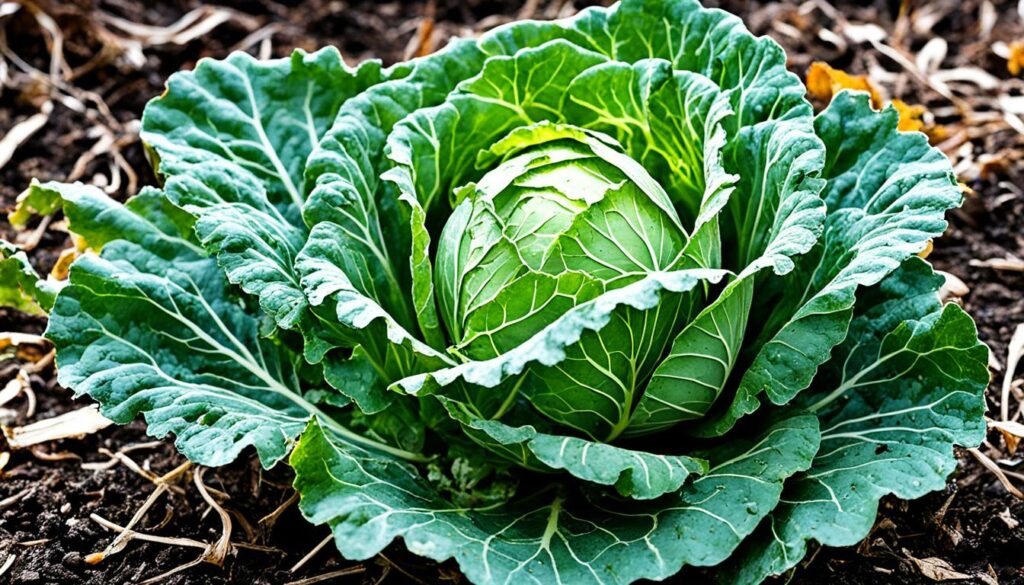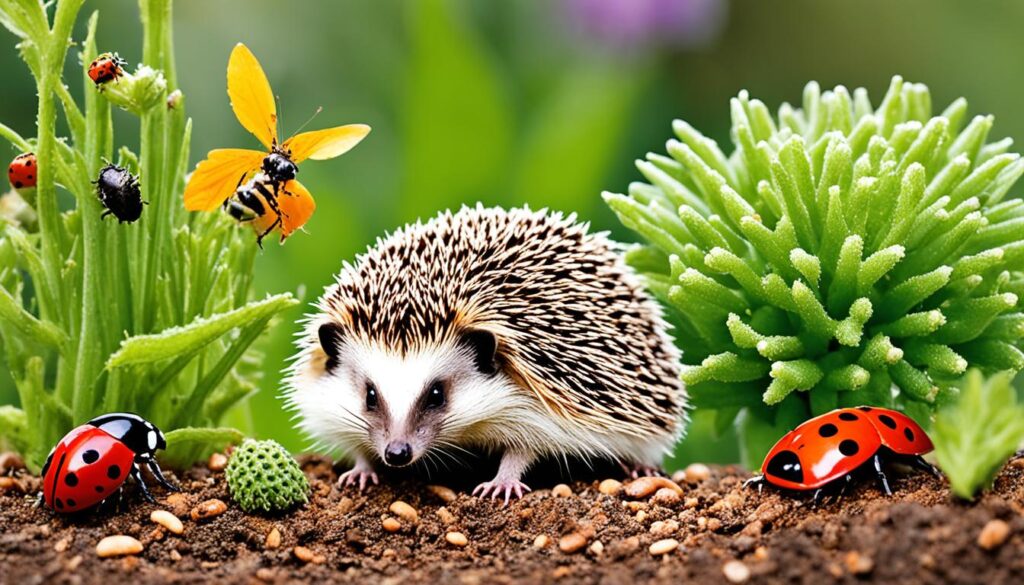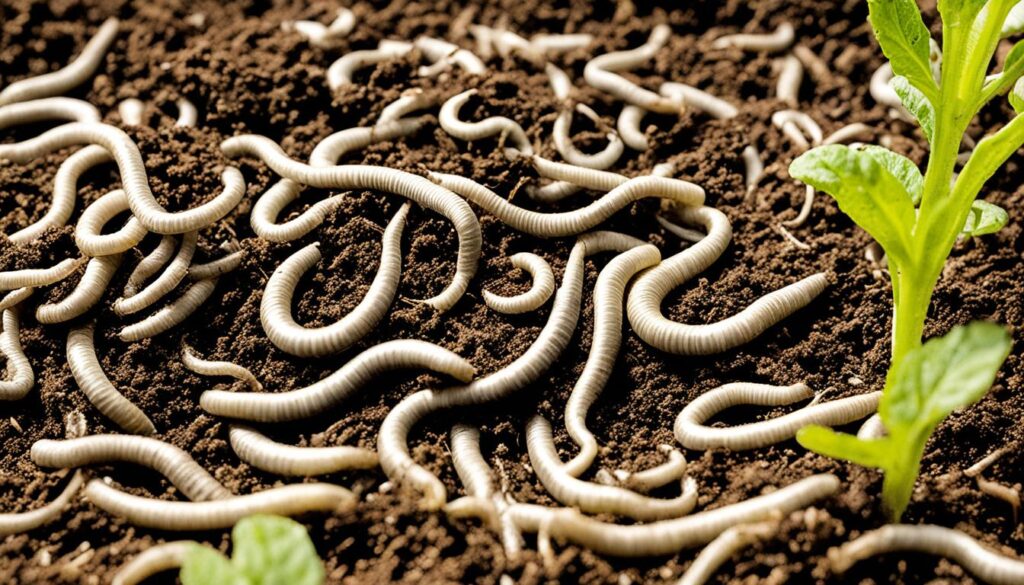Are you tired of garden slugs and snails eating your plants? You’re not alone. These pests can destroy your garden. But don’t worry, we have expert tips to help you fight back.
We’ll cover organic ways to control slugs and snails, including homemade traps. This guide is for those who care about the environment and want to keep their garden beautiful. You’ll learn how to keep these pests away from your plants.
The Menace of Garden Slugs and Snails
Garden slugs and snails can be a gardener’s worst nightmare. They can eat several times their own body weight of plants in one meal. These slimy creatures hide under stones, pots, and nearby plants. They quickly destroy seedlings, vegetables, and flowers, making them a big threat.
Understanding the Voracious Nature of Slugs and Snails
Slugs and snails have a huge appetite, always looking for plants to eat. They can eat a wide variety of garden plants, from young seedlings to big leaves and flowers. Their radulae, or rasping tongues, help them eat plants quickly, leaving behind slime and damage.
There has been a big increase in garden slugs and snails eating plants, especially later-flowering ones. This shows how much more of a threat they are to gardeners now than before.
The Destructive Impact on Plants and Crops
Slugs and snails do more than just make plants look bad. They can really hurt the health and productivity of plants, leading to less food and even losing valuable crops. Some plants like Veronica austriaca, many asters, nepetas, aconitums, coreopsis, ligularia, baptisia, and joe pye weeds are especially at risk.
Research shows that plants with hairy leaves might be less eaten by slugs and snails. This could mean that the type of leaf can affect how much damage a plant gets from these pests. Knowing this can help gardeners pick plants that are harder for pests to eat.

Traditional Slug Control Methods to Avoid
Many gardeners have used slug pellets with metaldehyde to control slugs and snails. But, these methods can be harmful to wildlife like birds, amphibians, and mammals. These creatures might eat the poisoned slugs or snails, causing harm.
It’s best to avoid metaldehyde-based slug pellets and choose safer options. These pellets can harm local ecosystems. Finding alternative solutions is key to keeping all garden creatures safe.
Avoiding the Pitfalls of Metaldehyde
Metaldehyde, found in many slug pellets, is toxic to wildlife. Poisoned slugs and snails can be eaten by other animals, spreading toxins. This harms not just the pests but also the ecosystem.
Gardeners should look for wildlife-friendly pest control methods. Avoiding harmful chemicals like metaldehyde helps protect plants and wildlife alike. A holistic approach to pest control keeps the garden healthy and safe for all.
Exploring Alternative Slug Control Methods
There are safer ways to control slugs and snails. Consider these options:
- Organic slug pellets with iron phosphate, safe for organic gardens and less toxic to wildlife
- Copper barriers and tape, a physical barrier for slugs and snails
- Beer traps, where slugs drown in beer
- Encouraging natural predators like birds, hedgehogs, and amphibians
- Nematodes, microscopic worms that control slugs and snails
Using these wildlife-friendly pest control methods helps protect plants and the environment. It’s good for the garden and the ecosystem.

Garden Slugs and snails: Biological Controls
Gardeners seeking eco-friendly ways to fight slugs and snails should explore biological controls. These natural methods offer lasting protection without harming other garden creatures.
Effective Use of Nematodes
Nematodes, tiny worms, are a top choice for fighting slugs and snails. Phasmarhabditis hermaphrodita nematodes, for example, attack these pests by entering their bodies and causing death. Apply them to moist soil in spring and early autumn for up to six weeks of protection. Remember to reapply them to keep them working well, especially in clay soils.
Encouraging Natural Predators
Aside from nematodes, attracting natural predators can also help control slugs and snails. Creatures like frogs, birds, and hedgehogs love to eat these pests. By making your garden a welcoming place for them, you encourage these predators to stay and help control pests naturally.
| Nematodes for Slug Control | Natural Predators for Slugs and Snails |
|---|---|
|
|

Using nematodes and natural predators together is a great way for gardeners to control slugs and snails. This approach helps maintain a balanced and healthy garden ecosystem.
Organic Slug Repellents and Barriers
Dealing with garden slugs and snails doesn’t need harsh chemicals. Instead, use organic materials for barriers that keep these pests away without hurting the planet. Items like copper tape, eggshells, and cinnamon are great for keeping your plants safe.
Copper Tape: A Shocking Deterrent
Copper tape is a great way to keep slugs and snails away. It gives them a mild shock when they try to cross it. This happens because the copper reacts with the pests’ slime, making it hard for them to move.
Putting copper tape around plants or garden beds works well. It stops slugs and snails from getting to your plants.
Eggshells: A Razor-Sharp Barrier
Using crushed eggshells around plants can also keep slugs and snails away. The sharp edges hurt their soft bodies, making it hard for them to move. This is a cheap, natural way to protect your garden.
Cinnamon: A Scent-Based Deterrent
Cinnamon’s strong smell can also keep slugs and snails away. Just sprinkle cinnamon around your garden or plant bases. The smell will keep these pests from coming near your plants.
Other Organic Slug Deterrents
- Diatomaceous earth: This powder, made from crushed fossils, can cut and dry out slugs and snails, keeping them away.
- Seaweed meal: Its drying effect can also keep slugs and snails away when used around plants.
- Coffee grounds: The smell of coffee can also repel slugs and snails when spread around plants.
Using these organic methods, gardeners can keep their plants safe without harsh chemicals. These natural solutions help protect plants and support good garden creatures too.
Homemade Slug Traps and Baits
Homemade traps and baits are great for fighting garden slugs and snails. They are easy to make and won’t break the bank. These DIY solutions help you control pests without using harsh chemicals.
Beer Traps
The beer trap is a popular way to control slugs. Slugs love the smell of beer and will crawl in to get drunk and drown. To make one, bury a shallow container near plants that slugs like.
Fill it with a light beer like lager or pilsner. Change the beer every few days to keep it working well.
Beer traps work within a 3-foot radius, targeting slugs well. They can also catch other pests like pill bugs and snails.
Wheat Bran and Corn Bran Baits
Another good bait is a mix of flour, water, molasses, and bran. This mix attracts slugs and dries them out when they eat it. The bran makes them dehydrate and die.
To make this bait, mix flour and water, then add molasses or corn syrup. Stir in bran until it’s thick. Put it around plants or where slugs are often found.
These homemade traps and baits are a cheap, green way to fight slugs. Use them with other pest control methods to keep your garden safe from these pests.
Slug-Resistant Plant Varieties
Gardening is a joy, but slugs and snails can be a big problem. These pests can destroy your garden. But, by picking slug-resistant plants, you can fight back and keep your garden safe.
Hosta and delphinium plants are great choices because they naturally resist slugs and snails. Also, flowers like foxgloves and fennel, and potatoes like Ambo and Cara, are less likely to be eaten by these pests.
Choosing slug-resistant plants helps reduce damage and cuts down on the need for chemicals or nightly patrols. With these plants, you can have a beautiful garden without worrying about slugs and snails.
There are many other plants that keep slugs away, like hardy geraniums and Astrantia, or Masterwort. These plants come in many colors, shapes, and sizes and are slug-resistant. Astrantia has unique flowers and leaves that slugs don’t like.
When planning your garden, mix in different slug-resistant plants for a beautiful, easy garden. Using these plants will help you have a garden that thrives, even with slugs and snails around.
Slug Control Through Garden Maintenance
Keeping your garden tidy can help keep slugs away. Remove places where they like to hide, like stones, flower pots, and plant debris. This stops them from finding their favorite dark, damp spots. Also, making your garden a home for slug predators can help keep slug populations under control naturally.
One top way to fight slugs is to get rid of their homes. This means:
- Clearing away rocks, logs, or other items that slugs like to hide in
- Storing flower pots and containers to stop slugs from taking shelter in them
- Regularly cleaning up fallen leaves and decaying plants from the ground
By taking these steps, you make your garden less inviting to slugs. This can lower their numbers and protect your plants.
Creating a wildlife-friendly garden is another great way to fight slugs. By encouraging slug predators like birds and insects, you can balance the ecosystem. This balance helps keep slug populations in check. Here’s how:
- Planting a mix of native plants that feed and shelter wildlife
- Using fewer pesticides to protect helpful animals
- Adding water sources, like a bird bath or small pond, to attract wildlife
By focusing on garden maintenance and creating a wildlife-friendly environment, you can manage slugs without harsh chemicals.
A balanced garden ecosystem is key to controlling slugs and snails. By following these garden maintenance tips, you can make your garden a place where slugs don’t thrive. This supports a variety of wildlife-friendly species.
Integrating Multiple Slug Control Methods
To effectively manage slugs, gardeners should use a mix of methods. This includes biological controls, physical barriers, homemade traps, and slug-resistant plants. Together, these create a strong integrated pest management plan. This approach uses different techniques to keep your garden safe from slugs in a way that’s good for nature.
Start by encouraging natural predators like geese, ducks, and ground beetles in your garden. Add to this by placing beer traps and bait stations to catch and kill slugs. Use copper mesh screens, copper tape, and plastic bottle shields around plants to keep slugs away.
Boost your organic gardening by adding slug-resistant plants like begonias, California poppies, and geraniums. Also, keep your garden clean to remove slugs’ hiding spots and food. By using these complementary slug control methods, you’ll have a strong defense against garden pests.



